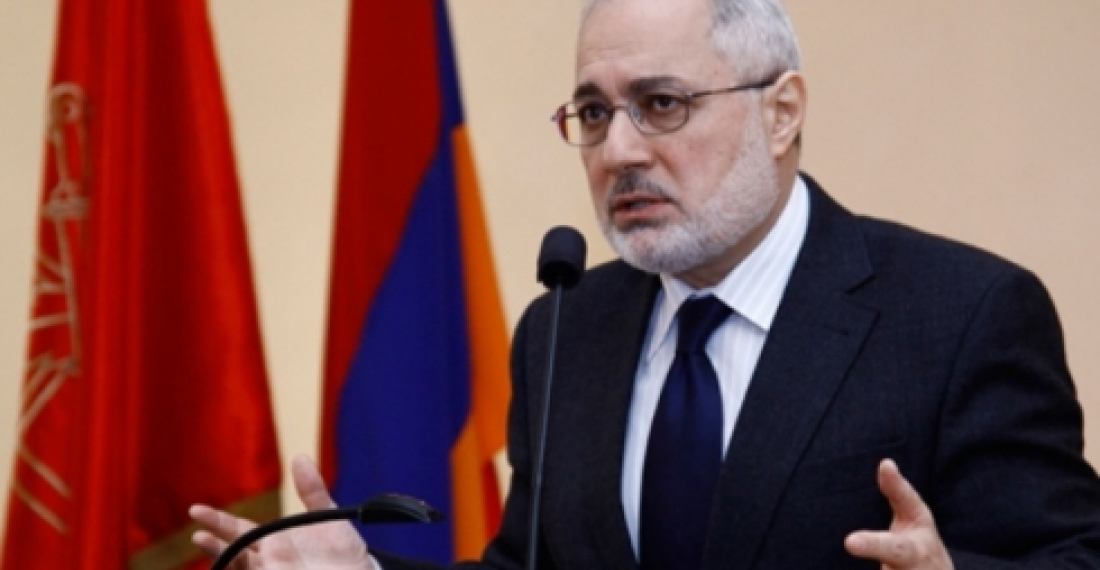The news of the death of Vahan Hovhannisian, Armenian politician and statesman, has saddened many in his country, as well as among Armenian communities abroad. Since 2013 Hovhannisian served as Armenia's Ambassador to Germany. But it was as a politician and de facto leader of the Armenian Revolutionary Federation - ARF - (also known as the Dashnaks Party) that Hovhannisian was best known.
Hovhannisyan was born in Yerevan. In 1978, he graduated from the Moscow State Pedagogical University with degrees in history and archaeology. After serving in the Soviet Army from 1978 to 1980, he was a research assistant. From 1990 to 1992, he participated in the Nagorno-Karabakh War.
He was a member of the ARF Central Committee from 1990 to 1992 and a member of the ARF Bureau from 1992 to 1995. He was jailed from 1995 to 1998 together with other ARF members and officials. The president of the time Levon Ter Petrossian accused the ARF of planning to overthrow the government by force. He was released within days of the appointment of Robert Kocharian as President. From 1999 to 2013 he was a prominent member of the Armenian Parliament, serving as Chairman of various committees, including the Defence and Security Committee and, from 2003-2008 as Vice Speaker. In the presidential election held on February 19, 2008, Hovhannisyan, running as the ARF candidate, won 6.2% of the vote.
Hovhannissian was well known and respected among political cicrles in Western countries where he often visited as guest of Armenian diaspora communities. He was also an active participant in the Socialist International - the grouping of world centre left political parties, of which ARF is a long-standing member. He also for a number of years headed the Armenian Parliamentary delegation to the NATO Parliamentary Assembly.
Commonspace.eu political editor said in a comment:
Vahan Hovhannisian was a rare type of Armenian politician who could combine political astuteness and resolve with great personal charm and a good sense of humour. He held strong and sometimes controversial views on a number of issues, which he debated forcefully both in Armenia and in the international arena. He was particularly critical of Turkey, and campaigned for the recognition of the events in Anatolia in 1915 as genocide. He often adopted a pragmatic view on issues related to the Nagorno-Karabakh conflict. He fought in the conflict in the early 1990s but was ready to sit with Azerbaijani politicians and discuss a solution to the conflict. His presence in mainstream Armenia politics was already missed in the last two years, since he left mainstream politics to become Ambassadort to Germany. The news of his death has saddenned many Armenians and others who knew him.
source: commonspace.eu.
photo: Vahan Hovhannisian, Armenian politician who died on 28 December 2014 (archive picture).







